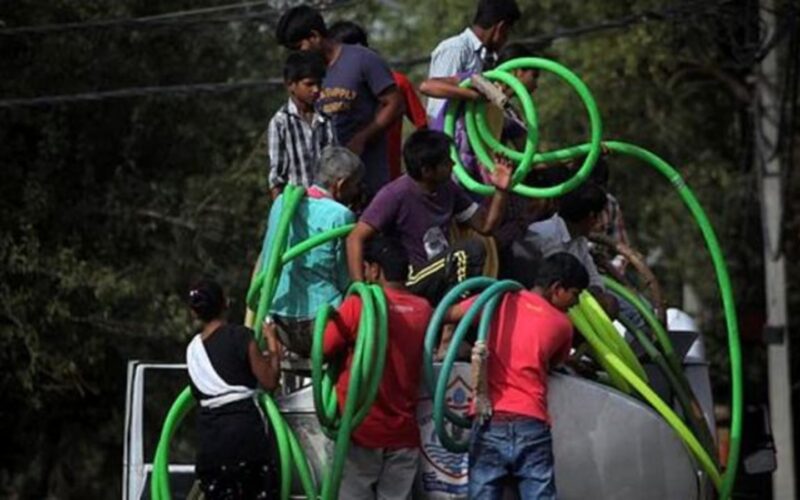Mumbai (National Times): The city of Mumbai is inching toward a critical water emergency as its key reservoirs, which serve over 12.5 million residents, have shrunk to just over 31% of their usable storage. With the monsoon weeks away and temperatures climbing, concerns over an impending water shortage are intensifying.
According to the latest update from the Brihanmumbai Municipal Corporation (BMC), the combined water stock across Mumbai’s seven main lakes has dropped to 5.67 lakh million liters. This marks a stark decline from around 9 lakh million liters recorded during the same period last year. At the current daily consumption rate of 3,850 million litres, available supplies may last no more than 45 days unless urgent measures or rainfall intervenes.
While smaller lakes like Tulsi remain relatively full—holding nearly 78% of their capacity—their contribution to the city’s overall supply is minimal. Larger sources like Bhatsa, Middle Vaitarna, and Modak Sagar are witnessing dangerously low water levels, raising red flags for officials.
Tanker Strike Worsens Water Woes
Compounding the crisis is a continuing strike by the Mumbai Water Tanker Association (MWTA), now entering its fourth day. The strike has disrupted services to apartment complexes, infrastructure projects, and even rail operations. The protest stems from the implementation of stricter Central Ground Water Authority (CGWA) guidelines affecting borewell and tanker operations.
Though authorities temporarily halted the enforcement of the new rules and initiated dialogue with Chief Minister Devendra Fadnavis and Union Jal Shakti Minister CR Patil, the strike shows no signs of ending. This deadlock has triggered widespread inconvenience and mounting public anxiety.
Emergency Powers Invoked
In response to the worsening scenario, the BMC has activated provisions under the Disaster Management Act, 2005. This allows the civic body to commandeer private water tankers to maintain steady distribution throughout the city. Ward-level response teams—comprising police, municipal workers, health personnel, and transport officials—have been deployed to oversee water deliveries and monitor public order at key distribution points.
Residents in urgent need of water can request assistance through Citizen Facilitation Centres, where tankers will be dispatched at minimal administrative charges. To ease the immediate burden, the BMC has also released 350 million litres from emergency reserves.

